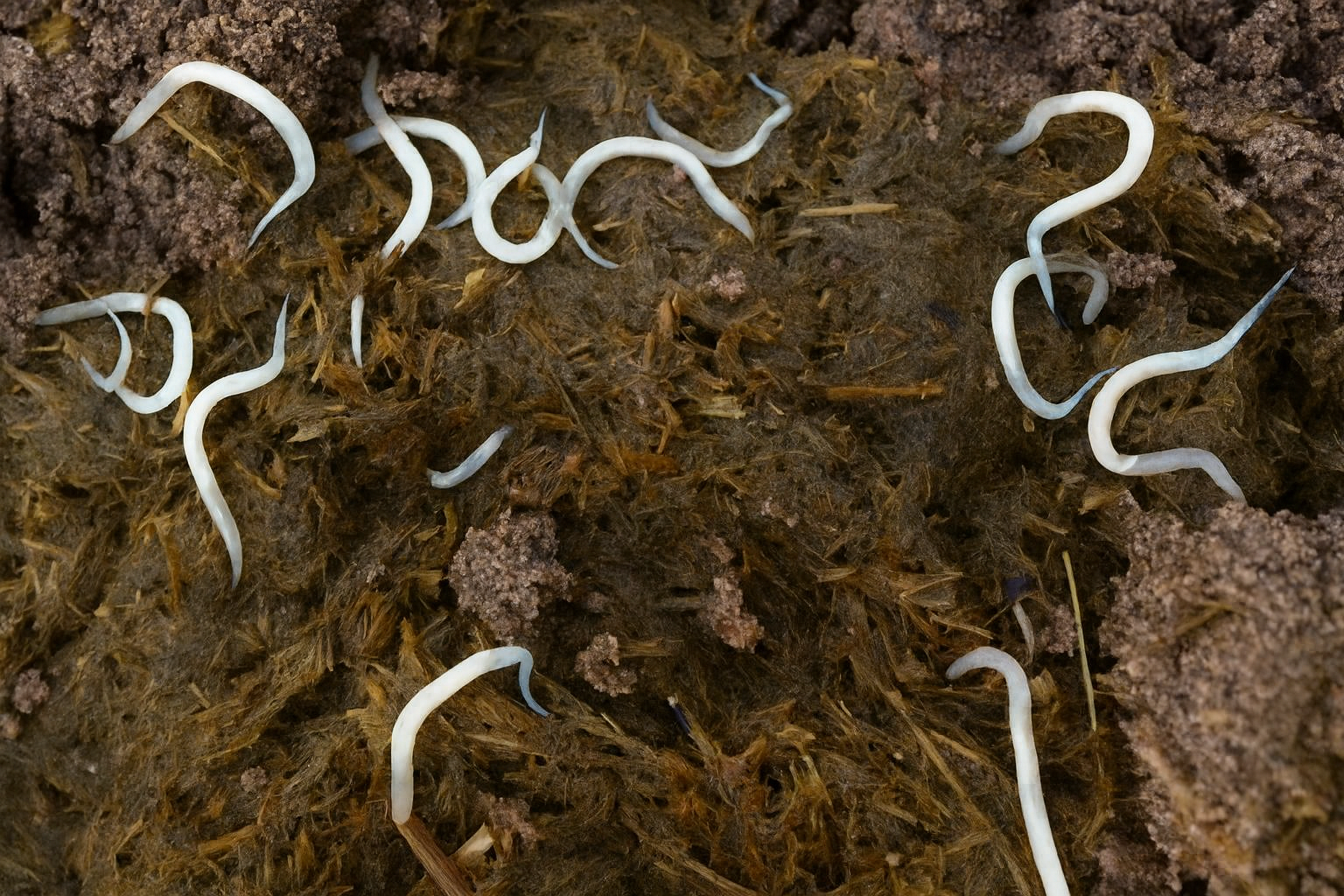Pinworms do not migrate or travel through the body. Adult pinworms remain in the rectum. When the donkey is sleeping or resting, the adult worms crawl outside and lay sticky eggs around the donkey’s anus, after which they return to the rectum. The infectious eggs then fall onto the pasture and are ingested by other donkeys while grazing. It takes 4 to 5 months for pinworm eggs to develop into adult worms. This process takes place in the large intestine. The main symptom of pinworm infection is itching around the base of the tail. The itching is bothersome but not dangerous. Since adult pinworms always remain in the intestines and do not migrate through the body, the discomfort caused by this worm is minimal.
It is often reported that worms are found in the manure, even though deworming is carried out regularly. The worms are then spontaneously excreted with the manure. Under Dutch conditions, pinworms do not play a major role. Please note that there can be other causes of itching at the base of the tail. If your donkey excessively rubs and scratches the base of its tail, we recommend that you contact your veterinarian. Since the eggs are not deposited in the manure but on the skin around the anus, pinworm eggs are rarely found during manure testing. The effectiveness of ivermectin against pinworms is sometimes insufficient, which means these worms can still be found in the manure after treatment.
We routinely check for pinworms during manure testing, but their eggs are not often found. If the manure test shows your donkey is infected with pinworms, we will provide you with a personalized treatment recommendation. This way, your donkey’s health comes first and unnecessary deworming can be avoided. Even if you suspect a pinworm infection, you can contact us. Please feel free to contact our team if you have any questions; we are happy to help!
